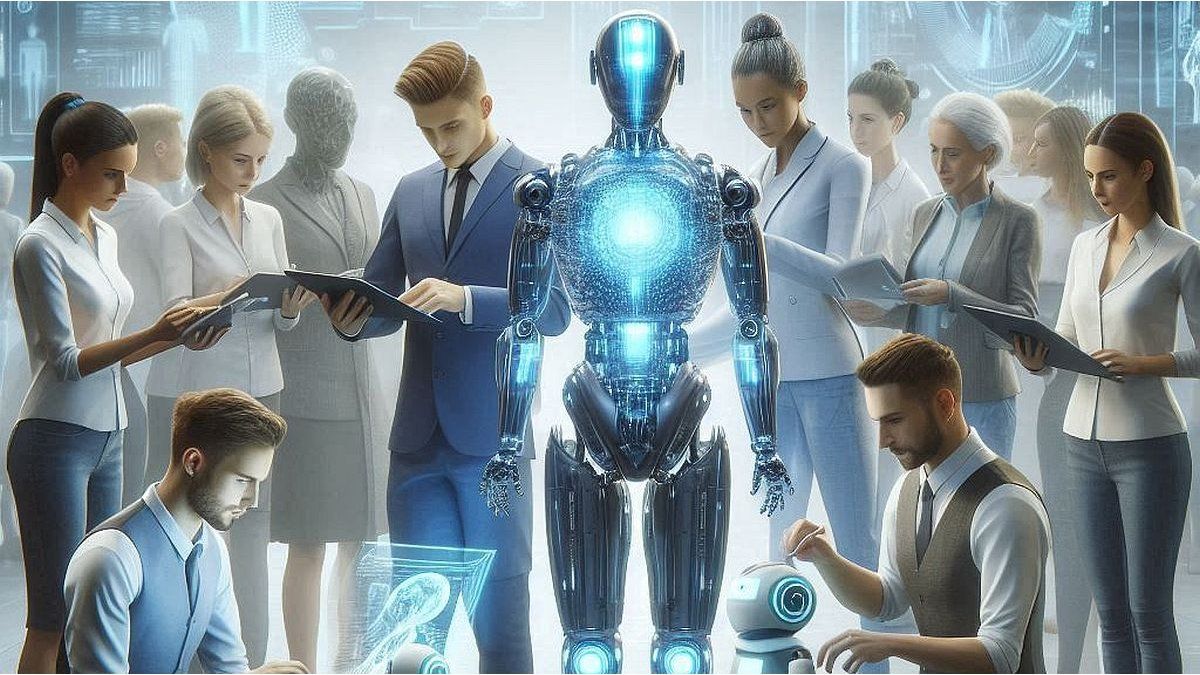In line with this scenario, 56% of respondents believe that they will work only 4 days a week.. Looking deeper into the number of hours people think they will spend at their jobs in the future, most respondents agree that You will work less time, but still maintaining a work schedule of between 4 and 5 days of work per week (85%). However, at the opposite extreme, 10% believe they will work between 6 and 7 days a weekbut with less workload each day.
image.png
Regarding these results, Andrea Ávila, CEO of Randstad for Argentina, Chile and Uruguay, stated:: “This study seeks to explore the possible scenarios that the world of work has in store for us in a 20-year horizon, which is complex in itself, taking into account that we are today in the midst of a technological revolution that is taking place at a pace never seen before, which makes imagining what work will be like in the future an exercise that generates more questions than answers. People’s perception of a possible reduction in the working day, whether with fewer working days or fewer hours and the same number of days, and the role they assign to flexibility in future scenarios, give us clear clues about the trends that we must closely follow.”
In this sense, shaping the characterization of work within 20 years in organizations in our country, The vast majority of people (80%) believe that work will be different from what it is today.
Furthermore, contrary to what some voices in the public debate on the future of work maintain and what the expectation of a reduction in the time spent at work in the future might indicate, the possibility of rushing to work as the main means of subsistence for people is not seen, since 80% of respondents agree that work will continue to be the main means of subsistence over the next 20 years.
Flexibility and hybrid work
When it comes to visualizing what work will be like in the future, a Majority 84% of Argentines perceive a scenario with greater flexibility than exists todayin contrast to 8% who believe that flexibility will remain the same in the future and another 8% who see work environments with less flexibility.
In the same sense, 70% of people perceive that in the future the dominant work format will be hybridwhile 24% believe that it will be completely remote. At the other extreme, only 2% of respondents believe that the dominant work scheme in the future will be in-person.
image.png

Methods of contracting
Another of the axes of approach of the study carried out by Randstad and UdeSA revolves around the mode of hiring that people imagine will prevail over the next 20 years. In this sense, the majority of respondents consider as an outstanding characteristic that The future of employment will be largely determined by independent and part-time work (88%), composed of a 70% of people are inclined to work independently for different companies in different parts of the world and part-time. Meanwhile, 18% believe that in the future the preferred work modality will be freelance work for multiple companies – but only at a local level – and also part-time.
According to these results, the dependency relationship would cease to be the preferred mode of employment relationship for the majority of workers.In this regard, only 9% of those surveyed believe that people will choose to work full-time as employees in a large corporation, and a minimum of 3% would prefer to work full-time as employees in an SME.
image.png

Analyzing the age cut-off of preferences regarding the type of ideal employment for Argentines in the future, it is clear that The youngest segment, which ranges from 26 to 35 years old, visualizes more than the rest that people will work in a dependent relationship in large corporations. However, As the age of workers increases, people are more inclined to the option of independent and part-time work for different parts of the world..
image.png

“While much of the focus on the future of work is on the impact of technological advances and digitalization, due to the great impact that this phenomenon has on the world of work today, this study aimed to go a little further in exploring scenarios to expand the focus to issues related to work mode preferences, the link with organizations, commitment and other factors,” Andrea Avila commented. And he added: “The widespread belief that employment relationships will cease to be the predominant form of contracting in this 20-year future that people imagine is one of the results that escapes the trends that are seen in the short term.”
How will artificial intelligence impact the workforce?
Artificial Intelligence is revolutionizing the labor market, generating new types of jobs while automating routine tasks. Following its implementation, it is expected that between 20 and 50 million new jobs will emerge by 2030, especially in sectors such as healthcare and pharmaceuticals. Although some industries may face significant job displacement, the economy is expected to benefit from increased productivity and output.
Impact of AI on the workforce
The impact of AI on the workforce is multifaceted. It involves automation of repetitive and routine tasks, changes in skill requirements, and job displacement. This can be beneficial for employees, freeing them up to focus on more complex and creative work, but it can also raise concerns about job displacement and changes in demand for certain types of jobs. However, AI is also creating new job opportunities, especially in data analytics, machine learning, and AI development.
Despite these potential benefits, there are also concerns about the drawbacks of implementing AI on a larger scale in the workforce. One potential concern for employees is job displacement, which can lead to unemployment and the need to retrain and upskill. Another concern is the potential for bias and discrimination in algorithms, which can have negative consequences for marginalized individuals and communities.
Impact of AI on employment
According to a report by the World Economic Forum, by 2025, AI will have displaced 75 million jobs worldwide, but will have created 133 million new jobs. This means there will be a net gain of 58 million jobs worldwide.
The impact of AI on unemployment rates will also vary by region and industry. For example, the manufacturing industry is likely to experience significant job displacement as a result of AI, while the healthcare and education industries are expected to see significant job growth.
According to a report by McKinsey & Company, AI is expected to create between 20 and 50 million new jobs worldwide by 2030. These new jobs will occur in a variety of industries, including healthcare, manufacturing, and finance.
How to adopt AI and learn skills to take advantage of this new technology?
That said, it would seem that resistance is futile and people need to accept that Artificial Intelligence is becoming a part of our everyday lives. Every workplace should embrace it, considering the efficient and cost-effective solutions it brings. It allows people to focus on more creative goals by automating decision-making processes and tedious tasks.
What skills does Adecco Argentina recommend developing to best adapt to the changes that artificial intelligence will introduce?
Soft skills
- Adaptability: be flexible and willing to learn and adapt to new technologies and methods.
- Communication: ability to explain technical concepts to non-technical audiences.
- Teamwork: effectively collaborate with other professionals, including developers, data scientists, and domain experts.
- Project management: ability to plan and execute AI projects efficiently.
- Ethics and responsibility: understand and address the ethical implications of using AI.
Analytical skills
- Critical thinking: evaluate and improve AI models and their results.
- Troubleshooting: address and solve complex problems with innovative solutions.
- Data analysis: ability to interpret data and draw meaningful conclusions.
Technical skills
- Develop in Programming and Software Development, Mathematics and Statistics, Data Science, Machine Learning.
Complementary knowledge
- Industry knowledge: understand how AI is applied in different sectors (health, finance, manufacturing, etc.).
- Security and privacy: learn about cybersecurity best practices to protect data and ensure privacy.
Source: Ambito
I am Pierce Boyd, a driven and ambitious professional working in the news industry. I have been writing for 24 Hours Worlds for over five years, specializing in sports section coverage. During my tenure at the publication, I have built an impressive portfolio of articles that has earned me a reputation as an experienced journalist and content creator.




